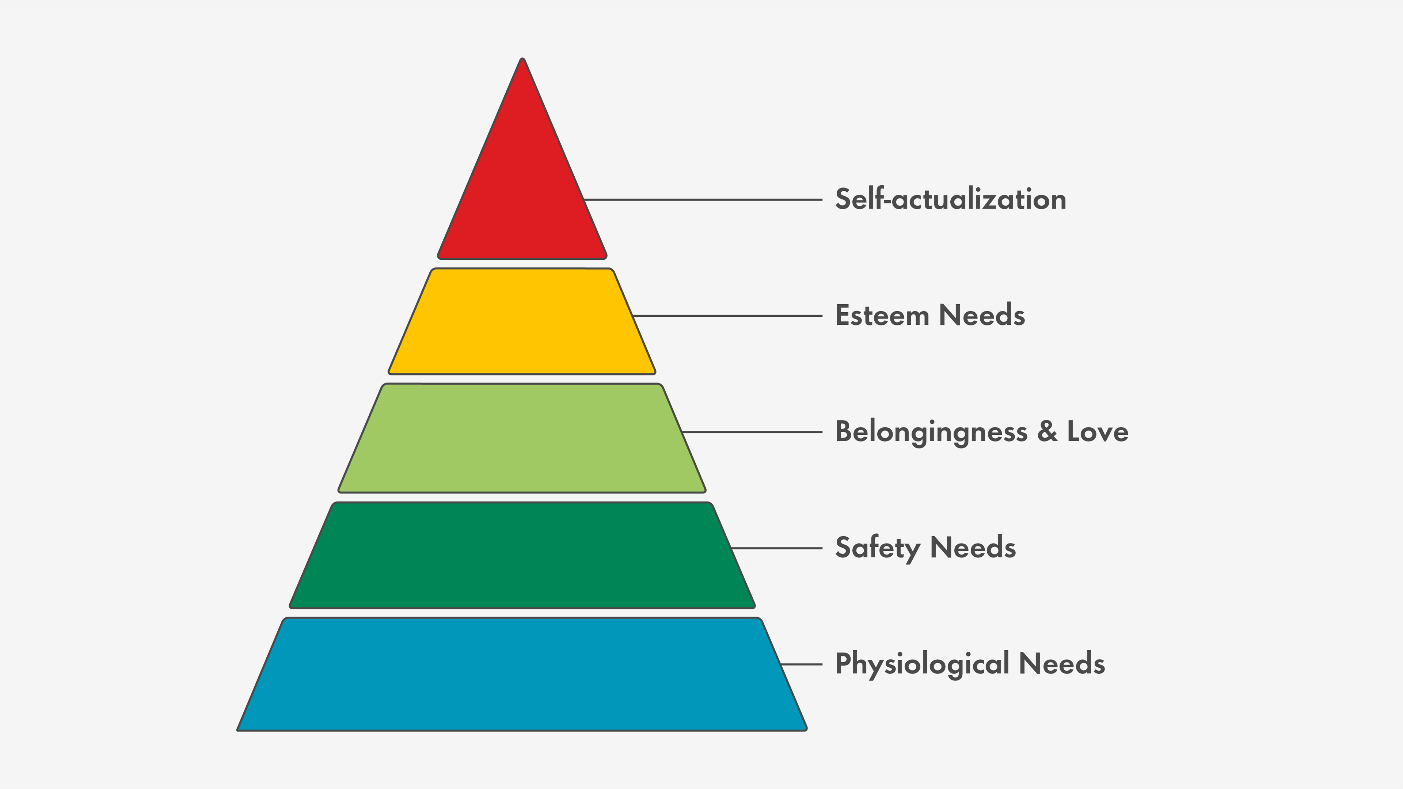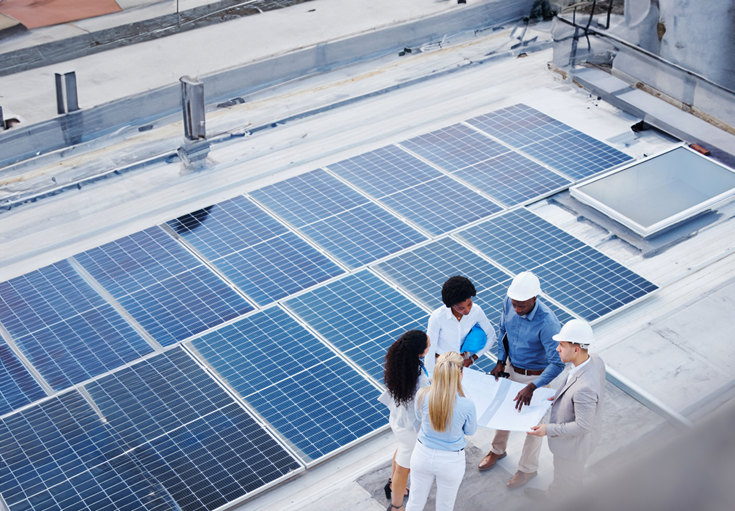Post - Blog
Unlocking the power of psychological theory to transform business energy relationships
- 8 months ago (2025-06-24)
- Junior Isles

By Greg Kavanagh , Sales Director, Shell Energy UK

Solar and Storage Live Philippines 2026
Sparked by geopolitical uncertainty and challenges around demand, the 2022 energy crisis thrust energy security and stable power supply into the spotlight for businesses across Europe. This is particularly true in the UK, where our dependence on gas and power generation led to increasing energy costs, supply chain disruptions, and heightened concerns over long-term affordability for businesses. [1]
More recently, as price volatility and reliability concerns returned, many companies switched suppliers with some prioritising short-term cost reductions over long-term stability. A record-breaking 113,000 businesses changed energy providers in October 2024 [2] .
But is this transactional mindset holding some businesses back?
I believe that focusing on price and viewing energy as just another cost on the balance sheet underestimates its true potential as a strategic asset that can drive growth, resilience and competitive advantage.
So, how can businesses shift to a smarter, more strategic approach that enables them to derive greater value from their energy contracts? One approach is to harness a classic psychological theory: Maslow’s Hierarchy of Needs [3] , and his concept of ‘laddering up the hierarchy’ to match one’s evolving needs.
Step one: Build on the strongest foundations
Maslow’s Hierarchy of Needs is a psychological theory exploring human needs and motivations through an ascending five-stage model, beginning with our survival essentials such as food and water.
The core principle is simple: humans need to meet their essential survival needs before they can consider growth needs. The same principle applies to businesses: just as humans need reliable sources of food and water, organisations need reliable energy provision.
When businesses have complete confidence in their energy provider’s ability to withstand market volatility, they are more willing and able to invest in long-term growth. In an unusually volatile environment of geopolitical tension, fluctuating prices and regulatory changes - this requires an energy supplier that is financially robust. Ideally, they should have several decades’ experience navigating international energy markets, advanced trading capabilities, extensive business and government relationships, and broader stakeholder networks.
This is why I think getting the basics right is critical. If I were looking after procurement, I would want certainty that the partner I choose could provide the level of service they have committed to throughout the duration of the contract – no matter what else is happening in the world.

Step two: Diversity of supply equals security
Maslow’s second tier - safety and security - is equally fundamental for creating an optimal energy strategy. During times of volatility, it is more important than ever that energy supply is both predictable and adaptable to changing market conditions, so businesses can survive, find stability and therefore focus on growth.
The 2022 energy crisis highlighted how relying on a single energy supply source creates vulnerability. Businesses that seek out providers with access to a diverse energy portfolio have been more successful in shoring up future energy security and mitigating market volatility.
A diversified portfolio can include alternative power sources such as liquefied natural gas and biomethane in addition to conventional gas and power. This helps to spread the risk, enabling businesses to reduce dependence on any single energy source, therefore helping to manage energy price and security while staying resilient against market and regulatory changes.
Renewable energy sources such as wind, solar and hydro can also be used for similar purposes. As the United Nations notes: “Reliable renewable energy technologies can create a system less prone to market shocks and improve resilience and energy security by diversifying power supply options.” [4]
While choosing a provider based on price alone is an understandable choice for businesses, it inevitably reduces the customer-supplier relationship to a commodity exchange and nothing more.
Selecting a trustworthy energy provider that can provide security, handle market fluctuations, and in some cases, unlock untapped revenue streams for businesses, elevates that relationship to a strategic one. In turn, this relieves businesses from having to constantly monitor and navigate market volatility, giving them a chance to focus on the bigger picture and foster growth.
Step three: Building stronger energy relationships
The next tier of Maslow’s theory, ‘love and belonging’, may seem somewhat removed from energy contracts. However, as businesses evolve and their needs become more complex, building meaningful relationships with their energy provider becomes key to unlocking value. It is also a growing trend.
According to a recent article in Procurement Magazine, while price and cost savings remain a primary objective, procurement’s role has grown to focus on broader value creation. The publication adds that “procurement leaders are now looking beyond immediate cost reductions to consider long-term value including sustainability benefits, innovation opportunities and strategic partnerships.”5

Meaningful progress can happen when businesses prioritise long-term relationships with their energy providers, viewing them as collaborators rather than mere commodity suppliers. This is a view shared by Hydro, which sees long-term partnerships as key to its decarbonisation journey. “As we work towards net-zero, selecting the right energy partner is a board-level priority. We needed a provider that understood our industry, our ambitions, and could support us in the long run,” says Lars Lysbakken, Energy Portfolio Manager at Hydro.
Though decarbonisation is often discussed in the procurement process, it can be overlooked in favour of day-to-day pressures. Organisations can maintain progress on their ambitions to reduce emissions while meeting near-term business needs through working with an energy provider that offers tailored decarbonisation strategies and options that can be scaled up – such as renewable natural gas, energy management strategies, energy efficiency consultancy, or environmental products.
This type of relationship enables businesses to get maximum long-term value while meeting their energy goals securely, reliably and in a cost-effective manner.

Step four: Tailoring your energy strategy
The fourth stage of Maslow’s theory – confidence, achievement, and individuality – might be the most relevant and exciting, as impactful energy providers recognise and adapt to businesses’ unique needs.
While short-term fixed contracts can provide stability, they can also limit flexibility and hinder the longer-term strategies needed for transformational growth. The right energy provider can tailor solutions to match specific operational and strategic goals, or even risk appetite. Flexible purchasing products and power purchase agreements (PPAs), combined with a mix of conventional and renewable options can all help to meet changing needs.
Bespoke relationships empower businesses to evolve from passive energy consumers to active players in the energy landscape. Flexible procurement plans provide them with the confidence that they can adapt swiftly to market changes and adopt a more agile and resilient energy strategy that puts businesses in control.
Step five: Unlocking peak potential
At the pinnacle of Maslow’s hierarchy theory lies self-actualisation, which he describes as the freedom to realise true business purpose and direction. Transposed to the energy world, this would enable a procurement relationship to go beyond delivering power and gas, and empowering businesses to thrive.
As the world transitions to net-zero emissions, energy systems are becoming increasingly decentralised, with more renewable, local electricity entering the grid. Battery systems can help to balance supply and demand, giving businesses the power to become more self-sufficient and take charge of their energy needs.
Virtual power plants (VPPs) are also revolutionising how businesses manage energy, integrating distributed resources such as solar, battery storage, and flexible demand into a single intelligent network. By optimising energy use and market participation, VPPs like EGO6 – recently acquired by Shell in Italy – contribute to a more flexible, sustainable and resilient energy system that can empower industrial and commercial customers to take control of their energy strategy, security and decarbonisation pathways.
At this level, the relationship with the energy supplier is focused on enabling customers’ innovation, resilience, and industry leadership.

How psychological theory powers possibility
In an increasingly uncertain world, energy can be seen as a dynamic force for positive change through strategic relationships that can fuel innovation and drive competitive advantage.
Maslow’s Hierarchy of Needs illustrates how the most enriching outcomes come from responding to higher aspirations. The same can be applied to the energy sector. At a foundational level, reliability and security are essential. However, real and sustained value emerges when businesses prioritise partnerships that elevate their ambitions, rather than merely meeting their basic requirements.
Energy has the potential to be more than just an additional cost on balance sheets, it can be a catalyst for progress. By working with trusted energy allies, businesses can evolve from keeping the lights on to achieving their boldest vision for the future.
References
[1] The report: protecting the UK from a future energy crisis (October 2024)
[2] Energy Live News: Energy supplier switching returns to pre-crisis levels (November 2024)
[3] VeryWellMind: Maslow’s Hierachy of Needs (April 2024)
[4] United Nations: Renewable Energy- powering a safer future
[5] Procurement Magazine: Top 10 procurement trends of 2024 (4 December 2024)
